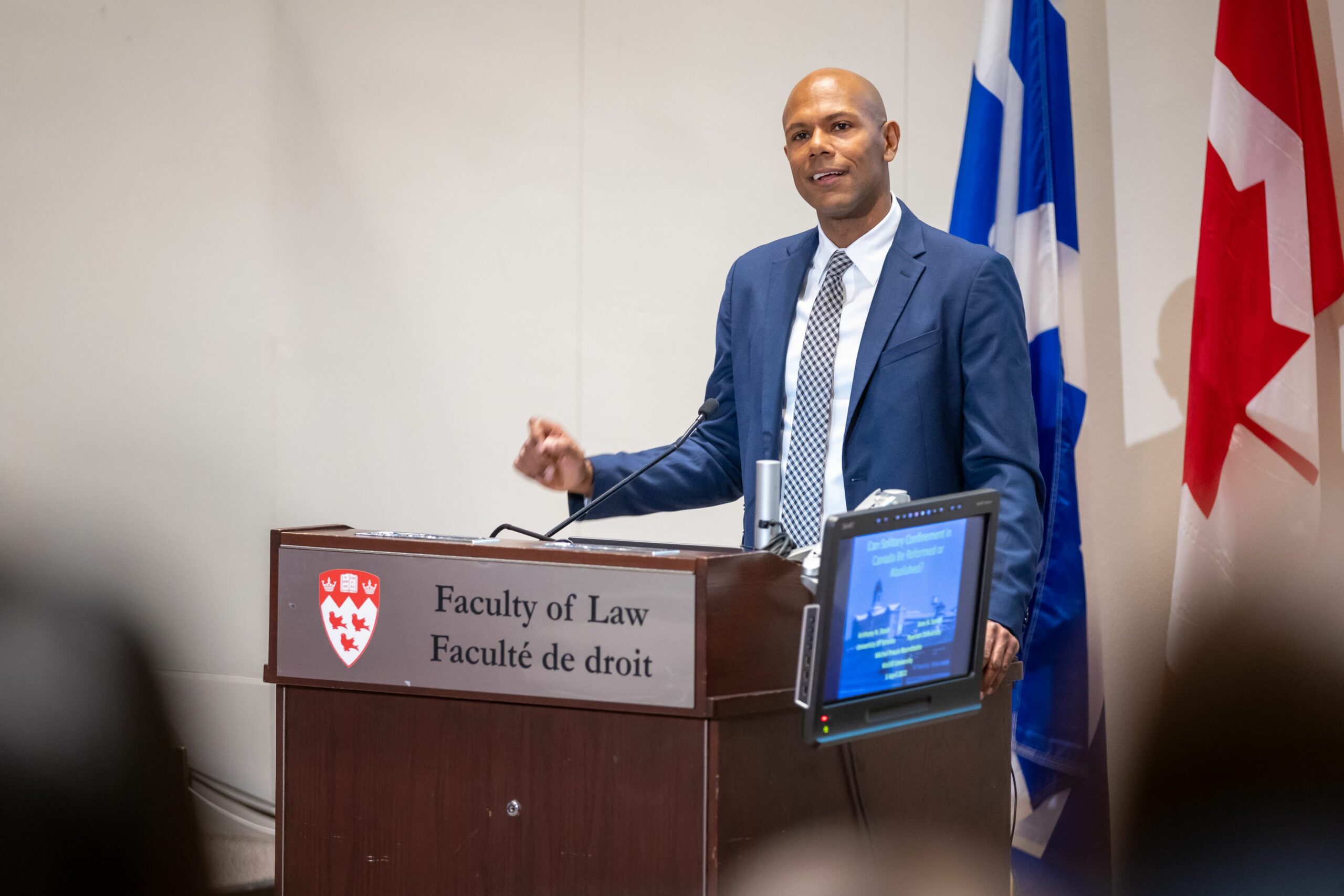
A matter of human dignity
“If a society can recognize that even someone guilty of a serious crime possesses inalienable constitutional rights, and human rights, that is a sign of that society’s commitment to human dignity,” said Professor Mugambi Jouet in introduction of this year’s Proulx Roundtable.
Solitary confinement is increasingly recognized as a human rights violation and form of torture, in violation of the U.N. Nelson Mandela Rules on prisoners’ rights. Yet it remains commonplace in the prisons of Canada and numerous democratic societies. “Our prisons are places of despair for countless prisoners,” Jouet said. “The situation evokes a lack of ambition, a failure of the imagination, and endemic injustices.” Abolishing solitary confinement, he said, could perhaps serve as a stepping stone towards a more equal and humane justice system.
To tackle this timely subject, Professor Jouet welcomed eminent criminologists Professor Emeritus Anthony Doob, University of Toronto, and Professor Jane Sprott, Ryerson University. They presented an overview of their research on “structured intervention units” – Canada’s attempt at reforming solitary confinement – which has garnered attention from scholars, practitioners, and the media, given its profound implications for Canadian criminal justice.

Bill C-83: An Act to amend the Corrections and Conditional Release Act and another Act
In 2019, Bill C-83 was introduced and became law. It was hailed by the government as abolishing solitary confinement. The new law replaced administrative and disciplinary segregation with “structured intervention units” that would provide inmates at least four hours a day outside their cells, two hours of which had to involve meaningful human contact. This baseline meant that the Mandela rules’ definition of solitary confinement would no longer be met, as it sets its threshold at two hours or less out-of-cell per day.
Professors Doob and Sprott described their findings on the state of solitary confinement since the law was adopted. Their analysis of “structured intervention units” utilization data painted a bleak portrait of Correctional Services Canada’s willingness to reform. Professor Doob, who chaired the panel responsible for overseeing the implementation of the reform, shared his personal experience dealing with an institution unwilling to submit to external oversight.
Effective reform would require strong political leadership, they underlined, a dire perspective given the lack of voter appeal of the matter. Nonetheless, during the question period, Doob confided his faith in the power of incremental change, while Sprott reminded attendees that society as a whole stands to gain from a more humane and effective rehabilitation system for people who will one day reintegrate our communities.
Watch the 2022 Proulx Roundtable on Solitary Confinement

Continuing the legacy of the Honourable Michel Proulx
The Michel Proulx Roundtable on Criminal Law is named after the Honourable Michel Proulx (1939-2007), who devoted his life to the improvement of the criminal justice system and to the advancement of human rights in Canada. Called to the Quebec Bar in 1963, he quickly became known as one of the finest criminal lawyers nationwide. In 1989, he was appointed to the Court of Appeal of Quebec. Michel Proulx taught Criminal Procedure and Evidence in Criminal Matters for over twenty years as an adjunct professor at the Faculty of Law of McGill, besides supporting our international human rights programs. His commitment to the Faculty of Law was constant and devoted, providing counsel and encouragement to students, teachers, and deans. The Faculty of Law hosts the Michel Proulx Roundtable Conferences in Criminal Law annually to honour his memory. The McGill community is grateful to the Proulx family for making this event possible.
